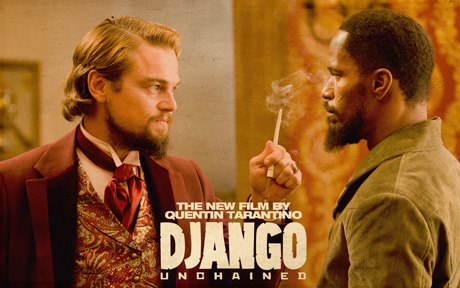Why It Was Worth Seeing all 180 minutes of DJANGO UNCHAINED (By: @TheUnicornnn)

1 comment,
31/12/2012,
by cocofullofgrace,
in Books/Magazine,
Freeing Slaves,
Movies,
Protest/Activism,
Rant




![Kevin Carr (@Kev_Carr) – #DateResponsibly 2: Choosing Better Men [eBook]](http://iamnotarapperispit.com/wp-content/uploads/2013/08/dateresponsibly-cover1-768x317.jpg)
![Rugz D. Bewler (@RugzDBewler) & Dice Raw (@DiceRaw) Freestyle on ‘Sway In The Morning’ [Video]](http://iamnotarapperispit.com/wp-content/uploads/2013/09/106113-768x317.jpg)

Great analysis. To me, the movie felt like a comic nightmare. The white supremacist scene was absolutely hilarious as the men bickered amongst themselves. At the same time, it was utterly terrifying because we know they are excited to lynch Django and the “n____-loving German”.
What was so disconcerting is that throughout the movie, there is normality and comedy while the holocaust of slavery happens. As the mandango fighters brawl to the death, blacks and whites drink and chat. When Django and Dr. Shultz arrive at Candyland, it is casually mentioned that Broomhilde is being tortured in the hot-box.
American slavery was abominably horrendous, but on the other hand, it was normal. That’s incredibly uncomfortable to admit.